Getting up close and personal with the fabled big 5 in Africa is the dream of many a traveller, but long believed to a privilege only reserved for the seriously wealthy. Botswana, even if it is the base of some of the most pristine game viewing on the entire continent, is also the most expensive safari destination. This is due to the government’s policy of keeping the tourist footprint at a minimum, thus focusing on high quality and highly cost lodges.
This article may contain affiliate links that provide commission on purchases you make at no extra cost to you. As an Amazon Associate I earn from qualifying purchases.
Other than Botswana, South Africa is traditionally one of the best choices promising a high quality safari, at a fraction of the price – assuming of course, that you know when to go. Timing is everything. You can expect to pay an average of $3 000.00 per week on safari costs, excluding your initial flight expenses. By planning your trip during South Africa’s low season, you can save up to a staggering $1400.00 per week! If you fly off peak, and book your seats well in advance, you can also save roughly around 40 percent on the price of your plane ticket.
Now, don’t get confused by the South African seasons. The “low” safari season is in fact the peak time for optimum game viewing. Low season in the country is during the colder winter months between April and September, when the Cape is cold and rainy, while the inland areas are sunny and dry. The peak season that correlates with the summer months and school vacations is rather linked to when South Africans prefer to take holidays as opposed to when foreigners prefer to plan a safari trip. For the sake of consistency, safari lodges joined suit by offering low season specials.
It is important to remember that the peak season is just that; the most popular time when the locals prefer to go on vacation. Lodges and camp sites will be booked out months in advance, and seeing that it is prime season, they can charge just about whatever they feel like. A safari in low season offers a much more affordable option, and not at the expense of experiencing awesome wildlife.
A less strenuous budget aside, what else can you expect from a safari during the low season, and what are the numerous benefits?
Wonderful Wildlife
Winter months in South Africa are typically dry and vegetation is sparse. Consider this a bad thing? Think again. The animals are much easier to spot, since they cannot hide away in the thicket. Trees don’t have as many leaves to obstruct the view, and remaining watering holes will attract animals from miles in vast numbers. These holes become hives of activity, and your chances of spotting wild life in the early mornings and late afternoons are excellent.
Although some visitors might wish to experience the lush landscape of the summer months, the tall grass will obstruct your visibility immensely. Muddy roads and bogs will make the experience less rewarding, unless you seek the adventure.
You may also enjoy: What to expect on a Private Game Reserve Safari in South Africa
Mild Weather Conditions
The summer months in the African bush can be scorching with temperatures reaching up to 45 degrees Celsius, depending on the area. If you are a camping enthusiast, you will find it extremely unpleasant during these times.
Except for the month of June, winter temperatures are usually mild, with cool evenings. The days are mostly sunny, and if there is no wind, it can be quite toasty during the daytime hours. And dare I mention that snakes and other creepy crawlies do not typically come out to play in the winter?
Remember, the summer months are synonymous with the raining season, so if the heat does not force you indoors, the humidity will.
No Humidity = No Bugs
Speaking of rain and humidity, bugs thrive in these conditions, so if you are bug bedevilled, here is another good reason to plan a safari during the dry season. Another big plus point is the absence of Malaria mosquitos. Mosquitos tend to breed and congregate around stagnant water pools, which you will find in abundance during the raining season. Mosquitos are not active during the winter months, even if you find yourself in a high risk Malaria area.
Still, for posterity’s sake, do take at least some mosquito repellent with if you are going to high risk area during this time, just to cover all bases.
Lose the Crowds
As mentioned, you can expect fewer people at the safari lodges and base camps during the off-peak season, so your safari experience will be less crowded. No queues waiting for game drive, and no mauling masses scaring off the wildlife. This holds true to the locals anyway. Chances are, you will run into quite a few people from abroad, so the camp or lodge will not be completely desolate, allowing you to socialize and indulge in traditional dancing around a fire without feeling awkward.
Leave the rainy summer months for the locals who are used to the conditions. They are accustomed to the Big 5, so they crave the challenge and adventure of seeking them out in the thicket. A safari trip during the dry season is most definitely highly recommended for the first time safari newbie, especially if you have high hopes of seeing lots of wildlife
The quality of the lodges and wildlife sightings can vary from park to park, so it is always advisable to seek out the opinion of unaffiliated websites or forums before your trip. When in doubt, the Kruger National Park, South Africa’s most famous wildlife reserve, is an excellent place to start. Motswari, Kambaku and Arathusa Lodge are but a few of the lodges scattered across the reserve that offers very attractive discounted packages for the enthusiast on a budget.
My thanks for this guest post to Jeff Cammack at Safari Guide Africa – a safari and travel tour operator in for South Africa. Safari Guide Africa builds custom South African safari tours and advises groups and individuals on vacations in the region.
This article is originally published at Heatheronhertravels.com


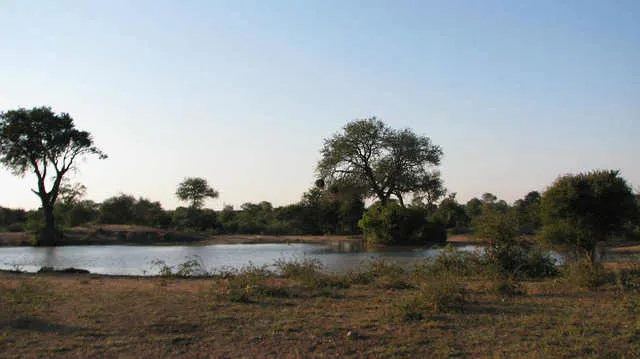
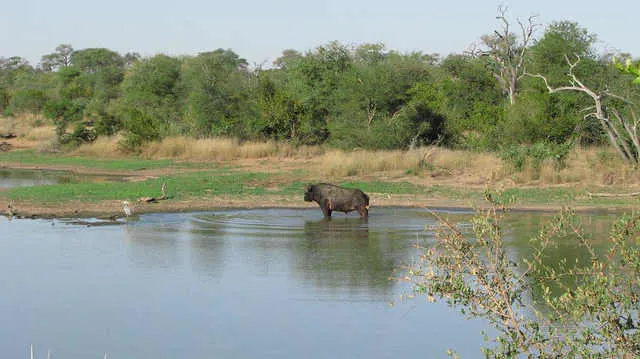
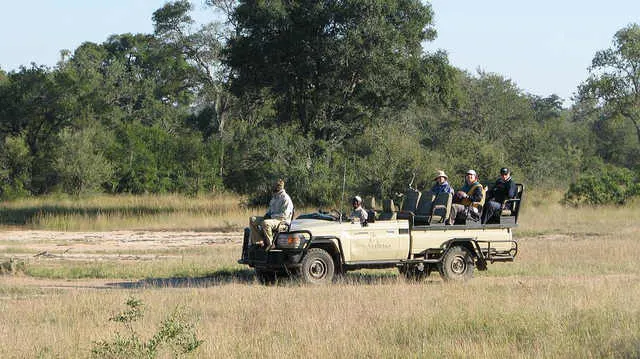
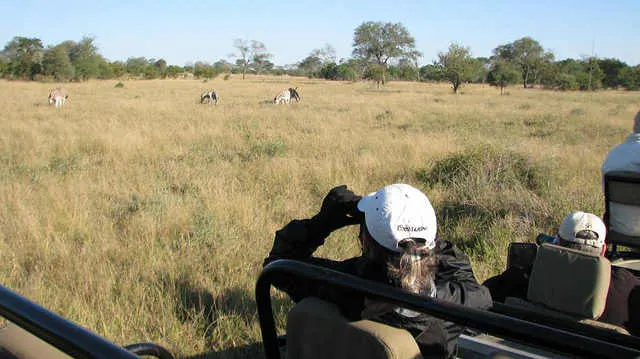
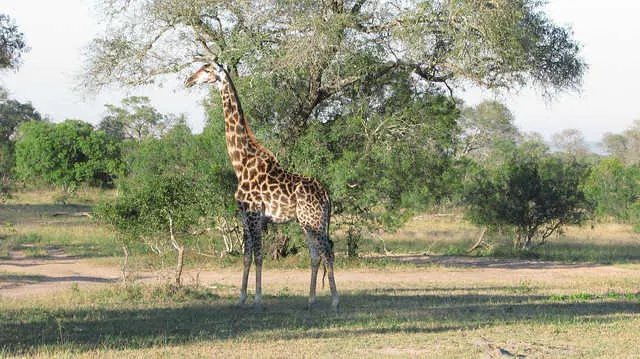

Matt
Tuesday 16th of January 2018
hi Heather Do you have any thoughts on the Madikwe game reserve?
Heather Cowper
Wednesday 17th of January 2018
@Matt - it's not a reserve I have visited but you could check with the author of this guest article who may know more.
Blog voyage
Thursday 5th of October 2017
Really interesting... I love south africa. Great pictures...
Steve Faulconer
Thursday 10th of September 2015
Excellent article with very good advice. I am a car rental service provider, and have lived for many years in Africa.
dave johnson
Saturday 20th of June 2015
Always love africa! nice blog
Travel Agents in Nairobi
Thursday 30th of January 2014
I'm regular traveler and I'm glad to read this article. After getting through your blog I found some useful information for me. This blog helps me a lot to plan my trip to South Africa. I'd just like to say thanks for sharing this useful and informative post through your blog.